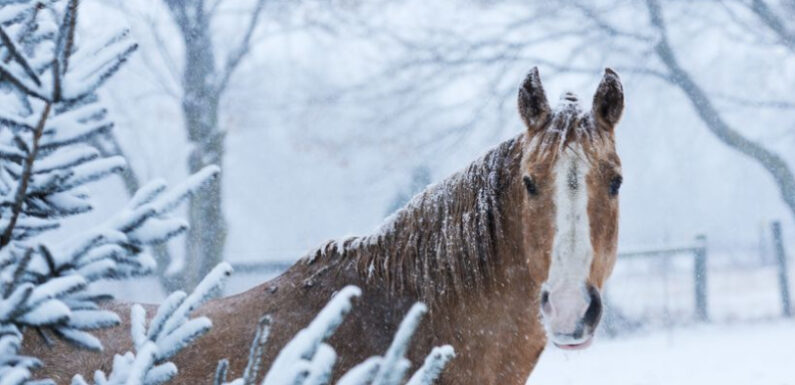
Getting your horse ready for winter
If you are living in a place where winters can be unbearably harsh, then this post is for you. Is your horse built to withstand those harsh winters? Yes, they most certainly are. But they do require extra care when the temperature plummets.
Evolution has blessed horses with adaptable features that help them survive comfortably in temperatures that are impossibly harsh for humans. However, race horses and thoroughbreds deserve a little more pampering during winter in order to maintain their prime condition.
Horses that require special care during summer will require the same during winter. Experts recommend de-worming the horse to ease its transition into winter.
Keeping your horse warm and cozy: The right way to do it
Most horse owners want to keep their prized thoroughbreds warm and cozy, but the truth is that all horses prefer and are comfortable outdoors. It is very easy to compare our comfort levels with that of a horse and tend to over-pamper and over-rug them. The best way to support a horse in winter is to give him plenty of fresh air and room to run at will.
A stall or a “nice, cozy barn” will actually have adverse effects on your horse’s health. Rugs and blankets that are specifically made for your horse will most certainly be comfortable. A horse should be allowed to cool down after he’s had a good run. Blanketing him when he is sweaty will only make him feel colder and uncomfortable. Moreover, it is not advisable to keep your horse constantly bundled up. Horses grow winter coats to naturally insulate their bodies by trapping air in between the hairs. Blankets flatten the hair and disrupt the piloerection function, allowing the body heat to escape.
Barns and shelters must be adequately ventilated. Ammonia fumes from the horse’s urine can also be toxic to their lungs.
The right winter diet for your horse
All horses need to drink extra water during the winter season to prevent dehydration and colic. An adult horse should be given at least 10 to 12 gallons of warm water (preferably at temperatures of 45-65 degrees). Horses that thrive on dried winter feeds such as hay and grain require more water in the winter because they contain less moisture.
It is important to remember that horses will not take adequate feed if they do not drink enough water. The lesser they consume, the more prone they become to impaction colic that will build up in time. Water intake is also vital to maintain the moisture level in the horse’s droppings.
How to avoid winter accidents
Even sure-footed animals like horses are prone to dangerous and fatal accidents during winter. If you live in an area where it freezes, make sure you check for holes and hollows where you keep your horse. These uneven dips should be filled with sand and levelled out before they fill up with rainwater that will freeze and make it a slippery hazard.
It is also advisable to move your horse to a safer place before the worst phase of winter sets it. A horse can seriously hurt itself on an icy, slippery surface, especially when he is out on his routine run. If the ice doesn’t break he will thrash around, trying to get a foothold and fracture his limbs in the process. If the ice does break, it is much more dangerous because he can cut himself on the broken ice.
Granular salt can be used sparingly to provide traction on slippery surfaces. Too much salt can irritate your horse’s hooves. You can also get winter caring tips from expert horse trainers and long-time owners.





